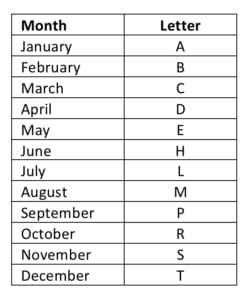Hague Convention: China signs Apostille Convention
China’s decision to join the Hague Convention is a major step towards facilitating international economic and trade activities.
On March 8, 2022, China signed the Hague Convention of October 5, 1961, commonly known as the “Apostille Convention,” which eliminates the need for the legalization of foreign public documents. The Convention will officially take effect in China on November 7th, 2023.
Benefits of Joining the Apostille Convention
This move simplifies the process of authenticating public documents, saving time and costs for businesses and individuals doing business in the region, and promoting transnational work. In presenting the “Instrument of Accession” to the Ministry of Foreign Affairs of the Netherlands, Chinese Ambassador Tan Jian confirmed China’s accession to the Convention. According to Chinese Foreign Ministry spokesman Mao Ning, the Convention will facilitate the international economy, trade, and transnational work.
Legalization of Documents
Sometimes, documents need legalizing when using them in a country other than the one in which they originated. The authentication process checks the authenticity of the document’s origin from the party or parties who appear to be its authors.
Legalization involves officially attesting to the legal quality of the person who affixed their signature on deeds, certificates, copies, and extracts, as well as the authenticity of the signature itself.
The Process of Legalization
The competent organs, central or peripheral, of the competent Ministry, or other organs and authorities delegated by the same, are responsible for legalizing signatures on deeds and documents formed in the State and to be valid abroad before foreign authorities.
For acts and documents formed abroad by foreign authorities and to be valid in the State, diplomatic or consular missions abroad legalize signatures. Legalization is carried out by comparison with a sample signature deposited by the public official with the competent body.
After this “internal” phase, most foreign legal systems, including China’s current system, require the document to undergo further control by the authority of the country itself. This “external” legalization is usually performed by the foreign consular representation in the country where the document originates.
Simplification of Document Authentication Process
Currently, a notary public must notarize foreign documents such as power of attorney or administrative resolutions, and the relevant Public Prosecutor’s Office must verify them. After that, the Chinese embassy or consulate in the issuing country will authenticate them.
However, the Apostille Convention, an international treaty, simplifies the process of authenticating public documents for use in foreign countries by abolishing the need for legalization.
What is the Apostille Convention?
The Hague Conference on Private International Law adopted the Apostille Convention in 1961, and it has been ratified by more than 120 countries and regions, including the USA, the UK, Hong Kong and Macau.
With the Apostille Convention, a public document issued in one contracting country can be certified for legal use in any other contracting country by obtaining an apostille from a competent authority designated by the issuing country.
An apostille is a simplified process of certifying the signature of the notarizing or authenticating public official. It eliminates the need for further certification or legalization by consular officials or embassies, saving time and costs for those who must use foreign public documents for legal purposes.
The simplified procedure applies to all public acts and notarized private writings originating in a contracting state and intended for use on the territory of another contracting state. The Apostille consists of a standardized stamp or sticker affixed at the bottom of the document, certifying the veracity of the signature of the public official (notary public).
Impact on Cross-border Document Circulation
China’s accession to the Apostille Convention is expected to have a significant impact on cross-border document circulation.
Chinese Foreign Ministry spokesman Mao Ning has announced that they will reduce the time needed to complete document authentication for use abroad from about 20 working days to only a few days.
This represents a significant improvement in the speed and efficiency of the process, which will benefit companies operating internationally, whether SMEs or multinational corporations.
Limitations of the Hague Convention
It is important to note that the Apostille Convention does not cover all types of documents. It applies to administrative documents such as birth, marriage, and death certificates; documents from an authority or official attached to a court, tribunal, or commission; extracts from trade and other records; patents; notarial deeds; and school, university, and other academic degrees issued by public agencies.
The Apostille Convention generally does not apply to diplomatic or consular documents, as well as certain administrative documents relating to commercial or customs transactions. This means that some customs documents for China will still require the legalization procedure.
Objections from Contracting States
Other contracting states to the Apostille Convention will have a six-month period to object to China’s accession. However, if a contracting state opposes China’s accession, the convention will not apply between China and that particular state, but China can still accede to the treaty. Therefore, it may not be possible to use the procedure for obtaining an apostille in China for documents from certain countries, although they are contracting parties to the Apostille Convention, and vice versa.
Finally …
If you need support with an apostille for Italy, please get in touch with us. While you are waiting for formalisation of an apostille, we are able to check the validity of signatures. We can provide a provisional confirmation that these appear genuine.
For over 55 years, De Tullio Law Firm has been providing international clients with independent legal advice throughout Italy. We are specialists in cross border property, inheritance and family law.
You may also be interested in Power of Attorney





